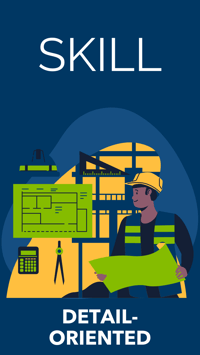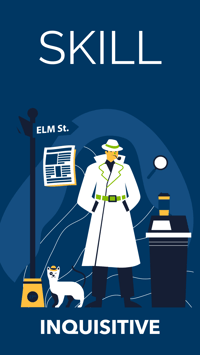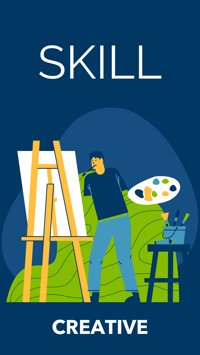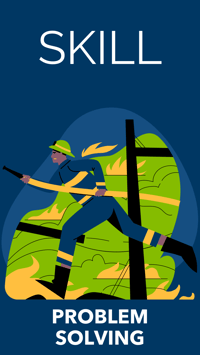The Router
-1.png)
Switching Careers? You're ALREADY Ready For IT
IT can look pretty hard to start a career in IT. You may think that you need to have years of technology or programming language knowledge in order to be successful. And honestly? you do. But the good news is that sometimes the technical skills are the easiest to learn.
Just because you're getting started in IT doesn't mean you're starting from scratch. You may not know it yet, but your previous education and work experience have set you up for success in IT.
Don't believe us? Check out some "non-IT" skills and careers below, and what they might lead to if you're interested in IT.
 Multi-lingual
Multi-lingual
Previous Jobs: Customer Service Representative, Marketing, Hospital Worker
You'd be great in: Programming | Developing | Systems Software
Whenever someone says that they work in IT, everyone thinks late nights, screens of code, and a few (or more) clicks leading to serious changes somewhere online.The truth is: that's exactly what it's like in IT, if you're a Programmer.
Programming is what makes your websites, apps, and software run correctly, and it's not that different from learning a new language. Programming includes learning a number of coding languages you'll need to learn to be competitive, such as C, Python, Java, and SQL. If you know more that one language, or pick up languages "easily", then you might make a great Programmer.
 Detail-Oriented
Detail-Oriented
Previous Jobs: Manufacturing Worker, Field Technician
You'd be great in: Network Administration | Systems Analysis
If a business has a computer network, someone has to be responsible for the physical components. In a Networking career, you'll be troubleshooting, configuring, and managing enterprise networks. That means lines connecting to lines, lines connecting to machines, and machines connecting to other machines in one grand interconnected system. Making sure that hardware doesn't malfunction and operates properly is a big undertaking, made up of an infinite number of small and detailed tasks.
You'll need some training in unified communications and basic software, but your previous experience in step-by-step troubleshooting and task organization are just as important.
Problem Solving
Previous Jobs: Administrative Professional, Retail
You'd be great in: Tech Support | Helpdesk | Hardware Tech
IT jobs are some of the best jobs for problem solving. Things go wrong at big organizations, especially when it comes to technology. Printers stop printing, computers stop charging, and anytime someone has to use a projector, a new mystery begins. That's where Tech Support comes in.
Anybody from a customer service background understands how to help while keeping a calm demeanor. The only thing you're missing for a career in Tech Support or Hardware Tech is an understanding of how hardware is designed and what software actually does inside the machine. You'll be able to discover the problem, eliminate outliers, and resolve the issue.
 Inquisitive
Inquisitive
Previous Jobs: Research Assistant, Loss Prevention
You'd be great in: Information Security Analysis| Cyber Security
Some jobs require workers that research trends and upcoming changes that could negatively or positively influence business. If you've ever held that type of job, then a career in IT Security would be a good tech fit.
Security needs are ever evolving, and you'll need to be able to stay on trend when it comes to new threats. You'll need to be thorough as well, always keeping an eye out for strange activity on the networks.
 Creative
Creative
Previous Jobs: Artist, Writer, graphic design
You'd be great in: Web Development | Design | UX
Are you pretty creative? A skilled writer or artist already has a lot of the training needed for a job in Web Development. Someone with a creative background will have a great understanding for how things should look and feel in the digital world. With a little tech study, you could start designing websites.
One of the major requirements in today's IT market is the ability to use technology creatively to fulfill a particular business need or create solutions that help the company move forward. All it takes is a little tech training and a great portfolio to get your foot in the door.
Other Skills
There are plenty of other skills you'll want to have in an IT Career, of course. Some of our recommendations include:
- innovation
- decision-making
- integrity
- good time management
- collaboration
- math/logic skills
If you have any of these qualities (or many of them!), you're already in a great place to start your career in information technology. So don't let learning new IT skills scare you away from a promising future. After all, the most important quality of someone pursuing tech is perseverance.
If you see an overlap with your past work from the examples or even want to find more ways your history could connect to an IT job, then contact us to see what your future in IT could look like.

.png?width=400&name=apply-today-ctas%20(2).png)
